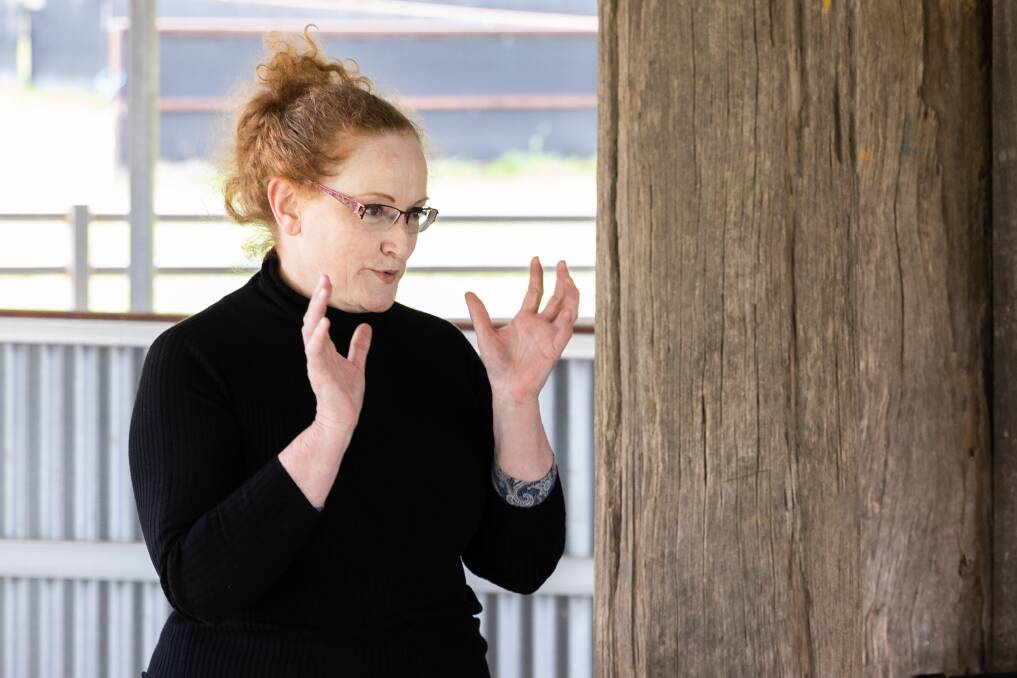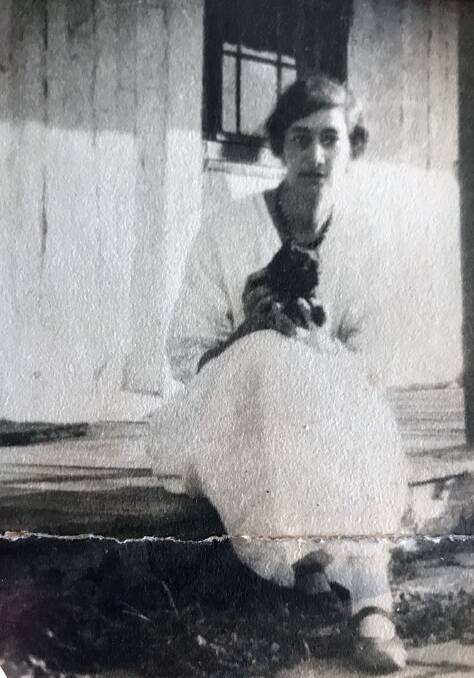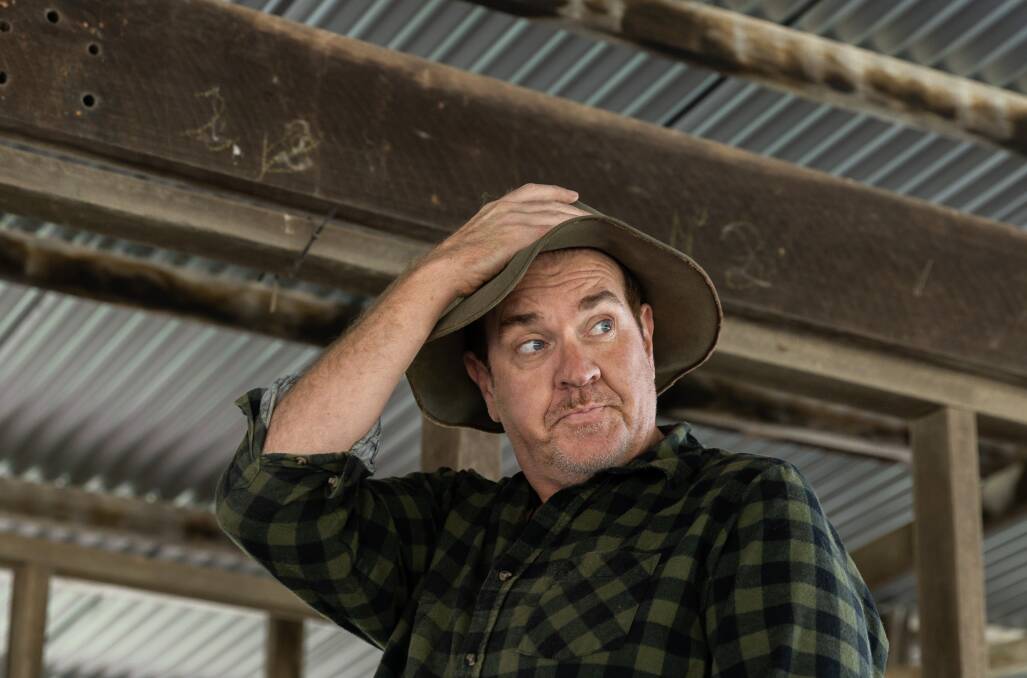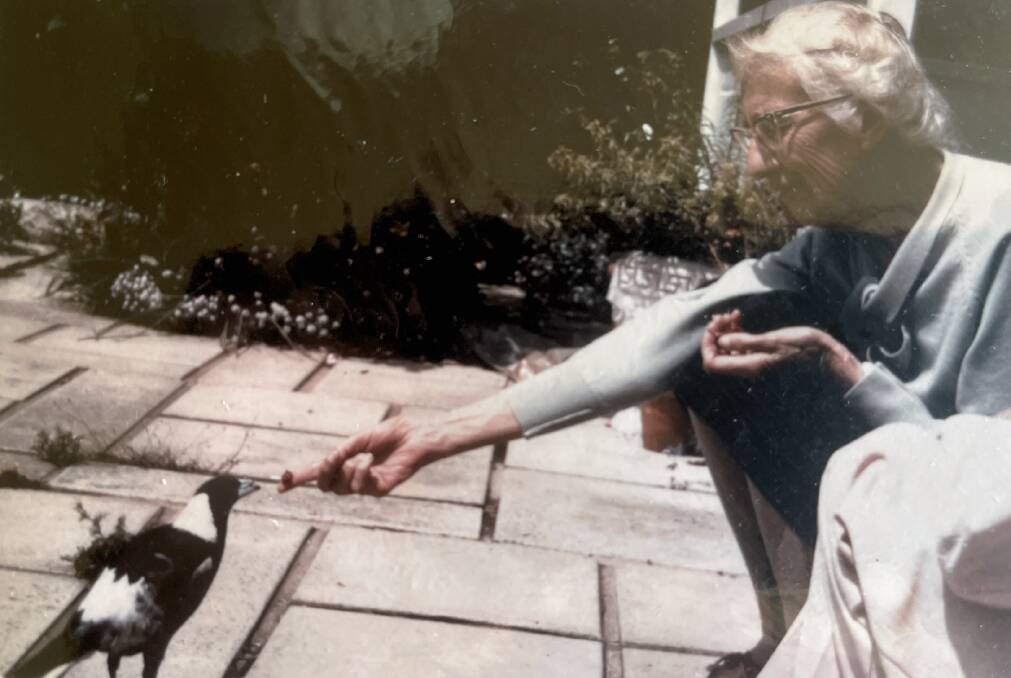Millicent Armstrong rarely spoke about her extraordinary life as a World War One nurse and successful playwright.
Subscribe now for unlimited access.
or signup to continue reading
As her great nieces and nephews said on Saturday night, she would almost be embarrassed by the attention.
They gathered at the Goulburn Performing Arts Centre (GPAC) to watch four of Millicent's plays being revived for the first time together. Gunning producer, director and artist, Dianna Nixon and her not-for-profit company, Music Theatre Projects, staged Drought and Other Plays as part of the inaugural Festival of Regional Theatre.
Millicent wrote plays before she left for London in 1914 but was caught up in World War One and served as a nurse in the Scottish Women's Hospital for Foreign Service. She worked in two hospitals for wounded soldiers, including in France. In 1918, she was awarded the French government's highest honour, the Croix de Guerre medal, for her courage under fire.

Family member, Lucy Knight, read an excerpt from her war diary, written when the French hospital was evacuated due to the German advance:
"It was the most extraordinary night - a little chapter of Hell. The men who were brought in were not merely wounded but shot to pieces - some scarcely human," Millicent wrote.
"A terrific air-raid came off - I was alone in the office and explosions caused a horrid little wind up one's neck! I leaned against the wall in the dark and thought how vile it all was!"
After the war, she took up a soldier settlement block, Clear Hills, between Gunning and Crookwell. Millicent farmed there with her sister, Daphne Watson, until 1939 and continued to write award winning plays.
Mike Katz, the current owner of Clear Hills, said farming on a soldier settlement block in the 1920s and 1930s was "an amazingly tough life," but the two women showed what could be done.

Great nephew, Tim Watson, said it was an understatement to describe his great aunt as a "remarkable person."
"She was extraordinary. She was a woman of great intellect, courage and integrity," he said.
"I knew her on brief occasions (while) visiting her with my father who honoured and loved her. I remember her as a kind and reserved lady."
Another great-nephew, John Emery of Gunning, said Millicent never sought fame or fortune.
"As a family we are immensely proud of her achievements and in particular, her war service."
She was born in Sydney in 1888 and died in Goulburn in 1973. Millicent moved to Cathcart Street, Goulburn in the 1950s after running a successful farming enterprise at Clear Hills.
On Saturday, Ms Nixon reproduced four of her plays - At Dusk, Thomas, Penny Dreadful, which were stage readings, and Drought, which highlighted the hardships of life on the land.
"If you're expecting stories about bucolic country life, think again," Ms Nixon said.
"I'd say her experience on the western front coloured her approach to her storytelling to some extent."

Ms Nixon said she was fascinated by Millicent's commitment to writing and the quality of her work but also what else she could have written if her life circumstances were different.
The plays' gothic undertones, "sparkling dialogue, idiomatic writing and strong female characters" enticed her to resurrect the works for stage.
GPAC manager Raina Savage said without Ms Nixon's "obsessive odyssey" over seven years, this would not have happened.
"The Festival of Regional Theatre aims to shine a light on the diversity and quality of theatre produced in the region, work that is often overlooked and under-appreciated," she said.
"(It) makes the project of reviving the plays of a celebrated but forgotten local playwright a fitting centre piece for the festival."
Millicent is also celebrated with an artwork and biography in the Centre's foyer.

Actors Heather Keens, Zsuzsi Soboslay, Caroline Simone O'Brien, Craig Alexander, Holly Ross, and Christopher Samuel Carroll performed the one-act plays before an appreciative audience.
Ms Nixon collaborated with Crookwell-based recording engineer, producer and songwriter, Stephen Lindsay who reproduced sounds of the bush to complement two of the plays. Mr Lindsay runs Old Binda Road Studios.
On Sunday and Monday, they were performed at Gunning courthouse.
Ms Knight said all of Millicent's works, some previously unpublished, had now been freed of copyright restrictions, enabling them to be studied in universities.
"Thank you to all involved with breathing new life into Millicent's plays and for bringing her story into the spotlight," she said.
Do you have something to say about this issue? Send a letter to the editor. Click here for the Goulburn Post
Our journalists work hard to provide local, up-to-date news to the community. This is how you can access our trusted content:
- Bookmark our website
- Follow us on Twitter
- Follow us on Google News
- Make sure you are signed up for our breaking news and regular newsletters


